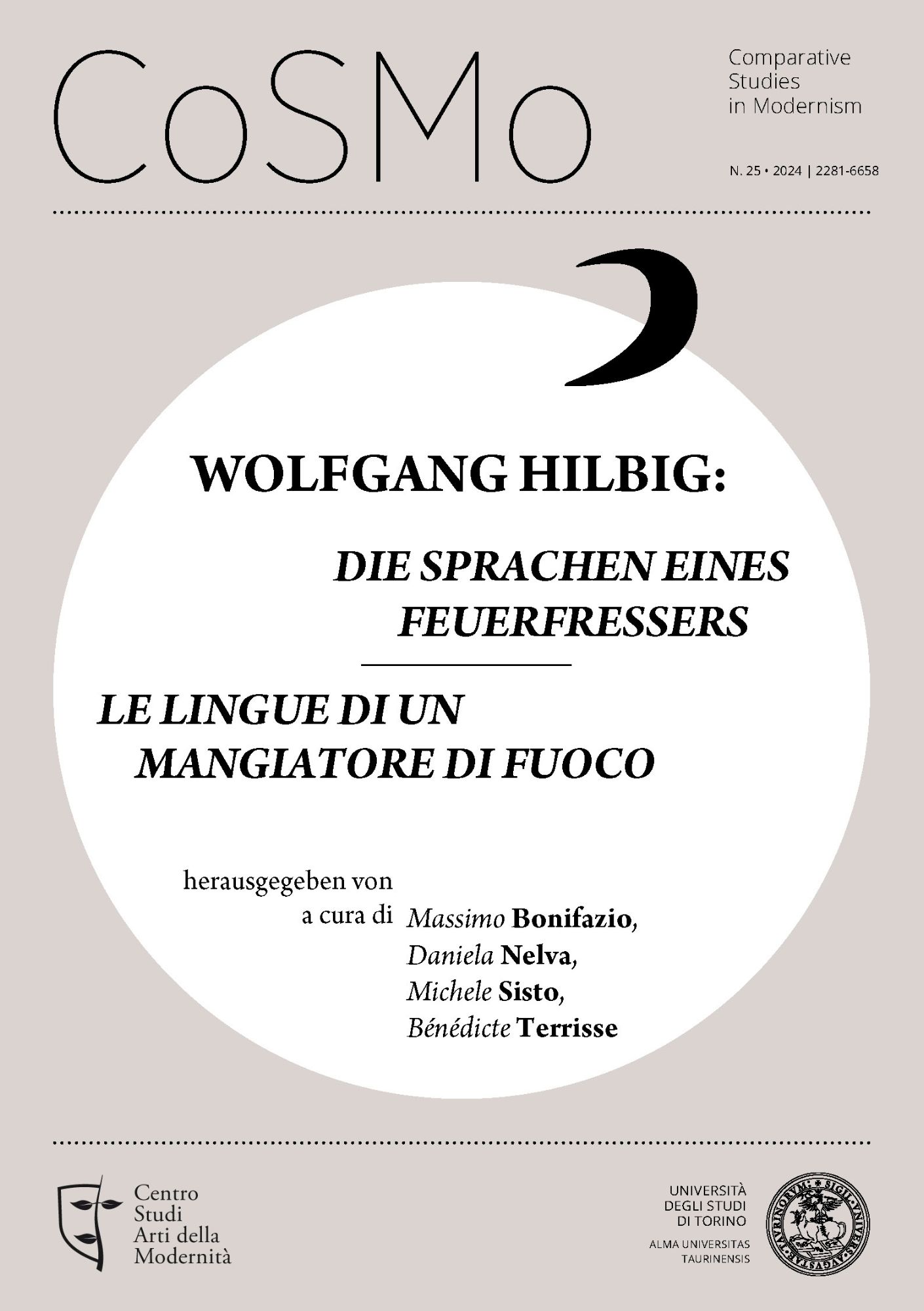Beyond the Narratives of Fail
Wolfgang Hilbig in France: An Uncompleted Transfer History
DOI:
https://doi.org/10.13135/2281-6658/11478Keywords:
Hilbig, France, Literary transfer, Comparative approachAbstract
This article looks into the reception of Wolfgang Hilbig's work in France, drawing on analyses of the sociology of literature (Bourdieu, Sapiro), cultural transfers and cultural mediators (Colin). The aim is to estimate the degree of recognition of Hilbig's work in France. The article proceeds chronologically, distinguishing two periods in the reception of Hilbig's work in France: the first from 1988 to 2004, and the second from 2002 to 2024. The chronological approach is combined with a thematic approach devoted to the different figures of mediators of Hilbig's work in France and their different functions: that of the “gatekeeper” in the world of French publishing (Bernard Lortholary), that of the “tastemaker” like the Franco-German mediator Nicole Bary, that of the hybrid mediator acting in the fields of translation, literary criticism and academia, particularly in German Studies as practiced at the Sorbonne University, and finally the writers as charismatic instances of consecration (Bergounioux, Claro). The notion of failure and its representations appears as a key notion, brought into play and discussed at several levels.
Downloads
Downloads
Published
Issue
Section
License
Authors keep the copyrights for their work and give the journal the work’s first publication copyright, which is at the same time licensed under a Creative Commons License – Attribution, which in turn allows other parties to share the work with an acknowledgement of the work's authorship and initial publication in this journal.
Content Licence

You are free to copy, distribute and transmit the work, and to adapt the work. You must attribute the work in the manner specified by the author or licensor (but not in any way that suggests that they endorse you or your use of the work).
Metadata licence

CoSMo published articles metadata are dedicated to the public domain by waiving all publisher's rights to the work worldwide under copyright law, including all related and neighboring rights, to the extent allowed by law.
You can copy, modify, distribute and perform the work, even for commercial purposes, all without asking permission.





